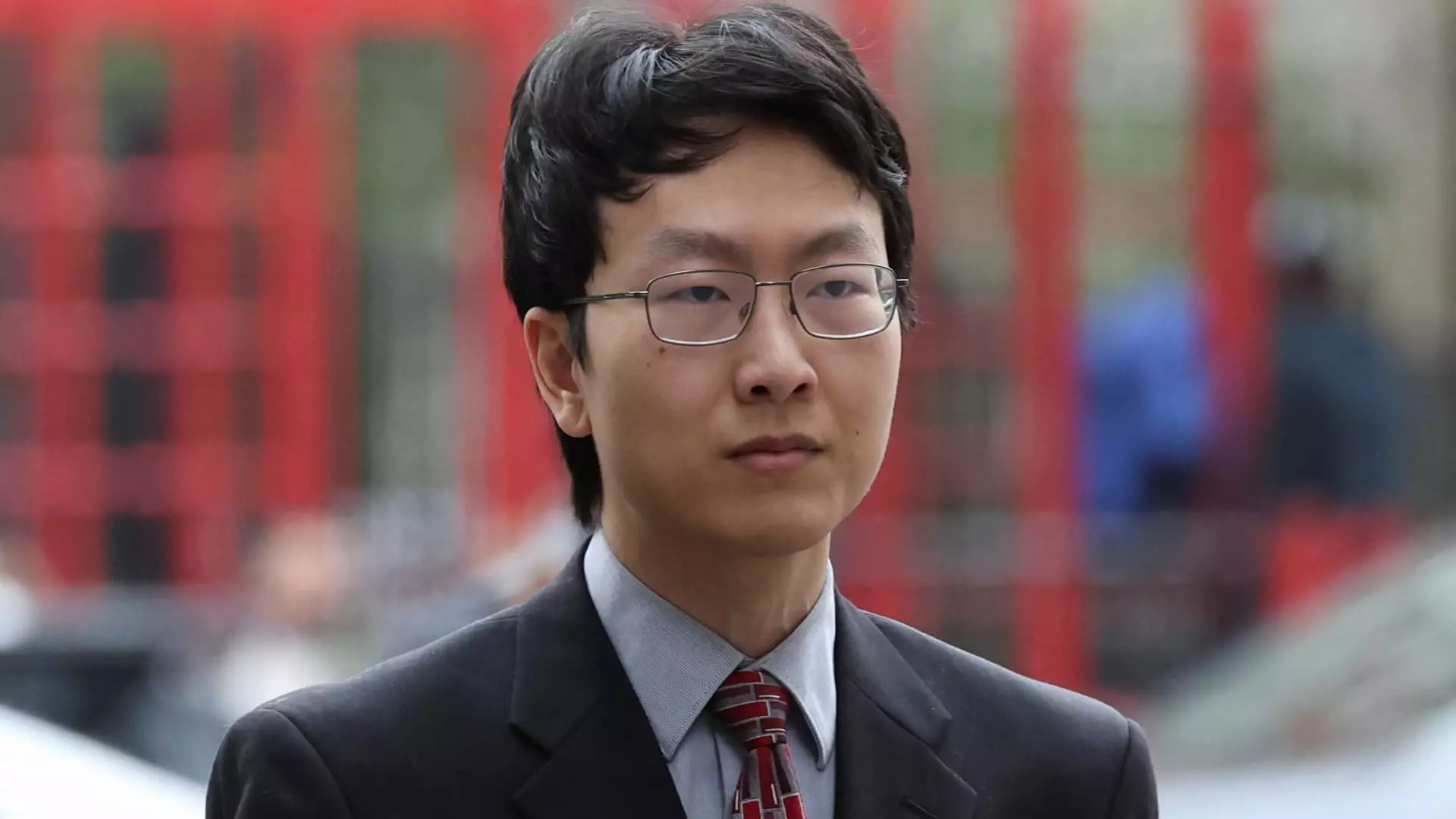The collapse of FTX, once viewed as a pioneering crypto exchange, has cast a long shadow over the cryptocurrency landscape. The sentencing of Gary Wang, the firm’s co-founder and former technology chief, on four counts stemming from his involvement in the exchange’s fraudulent activities, marks a significant chapter in the ongoing fallout from the FTX debacle. With his sentencing occurring on a backdrop of extensive legal proceedings against other key figures within the organization, Wang’s new reality raises questions about accountability, cooperation, and the ethics of corporate governance in the cryptocurrency space.
Wang was sentenced to time served, coupled with three years of supervised release for each of the four charges to which he pleaded guilty, ranging from conspiracy to commit wire fraud to conspiracy to commit securities fraud. While the possibility of a severe fifty-year sentence loomed, the outcome seems to reflect a mixture of judicial leniency and strategic cooperation from Wang. Importantly, he was ordered to forfeit $11 billion, mirroring the punitive measures taken against others involved in the scandal.
The courtroom scene during Wang’s sentencing was poignant, as he expressed remorse for his actions. He admitted to taking “the cowardly path” rather than doing what was morally right, a statement that casts a stark light on the personal toll of corporate wrongdoing. The presence of his family, particularly his pregnant wife, highlighted the human element beneath the legal proceedings, showing that the corporate failures had repercussions that reached far beyond financial losses.
Wang’s active role as a cooperating witness proved pivotal in navigating the turbulent waters of his legal situation. His testimony against Sam Bankman-Fried, the former CEO of FTX, was deemed indispensable by government prosecutors. Assistant U.S. Attorney Nicolas Roos noted Wang’s eagerness and effectiveness as a cooperating witness, emphasizing that he “deciphered half of the case” for authorities. This aspect raises questions about the nature of cooperation in legal contexts—does turning state witness offer a moral reprieve, or does it merely reflect a self-preservation instinct that permeates corporate America?
Wang’s claim to have had limited insight into the deceptive practices of FTX adds another layer to this discussion. As his attorneys argued, he was portrayed as somewhat naive compares to others, lacking the comprehensive understanding of the fraudulent machinations that characterized FTX and Alameda Research. This raises a fundamental question about the responsibilities of executives and technology leaders in high-stakes environments—how informed must one be to be held liable for corporate crimes?
The case against FTX is part of a broader narrative that sees multiple former executives facing severe sentences—Bankman-Fried received a particularly harsh 25 years, reflecting the judge’s stringent approach to accountability in corporate crimes. Others like Caroline Ellison and Ryan Salame also faced significant sentences that dismantle any notion of immunity for high-ranking employees using their positions for fraudulent gain.
Judge Lewis Kaplan, overseeing these cases, has notably referred to the situation at FTX as unprecedented, signaling the complexity and magnitude of the fraud. The legal consequences faced by those at the top could serve as a deterrent in the rapidly evolving cryptocurrency industry. However, whether these measures will lead to greater accountability in tech-driven environments remains a topic ripe for debate.
As the dust settles on this high-profile case, the implications on corporate governance practices within the cryptocurrency industry are far-reaching. The individual narratives of those involved warrant a deeper investigation into the ethical frameworks that guide executive decision-making. Wang’s regretful acknowledgment of his actions serves as a cautionary tale for professionals navigating the delicate interplay of innovation and regulation.
The cooperation agreements, and their implications for accountability, cast a shadow over the fundamental principles of justice and responsibility. In an era where digital currencies pose both potential and peril, the ramifications of cases like FTX might force a reconsideration of ethical standards not only within the crypto sector but across the broader financial landscape. As stakeholders look to the future, the legacy of FTX will undoubtedly invoke discussions about integrity, oversight, and the necessity of maintaining ethical barriers in burgeoning industries.

